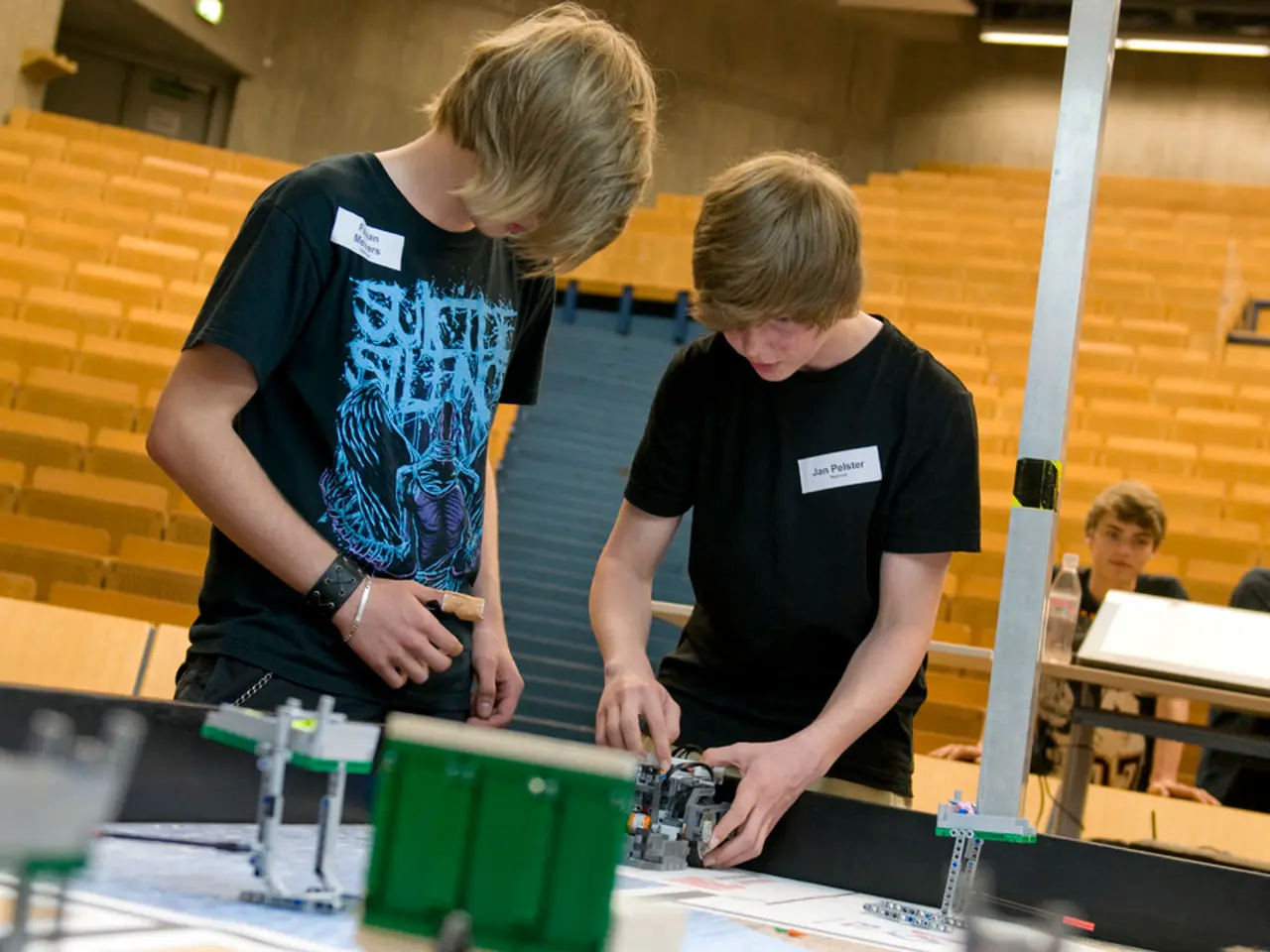Research and Development: A Summer of Learning and Personal Advancement
=================================================================================================
Nathan Nguyen, Natural Sciences Correspondent, shares his experience of navigating his academic and professional journey, emphasising the importance of finding caring mentors for undergraduate researchers. Initially, he felt intimidated working with graduate students, postdocs, and faculty, but these relationships have proven to be invaluable.
As a researcher at a bioengineering lab, Nguyen found himself working on the development of a sustainable protein purification method. His mentor, a Ph.D. student, taught him more than just how to run experiments. He imparted creative problem-solving skills, persistence after failure, and other nuanced research techniques.
The lab was a collaborative working environment where everyone, from undergraduates to postdocs, contributed ideas and critiqued each other's work. Nguyen learned that mentorship in research is about teaching how to think, not just how to do an experiment. Undergraduates should not shy away from asking questions, even when admitting a lack of knowledge, as these moments foster learning.
The sense of community created in the lab made the often isolating work of research feel more connected. His mentor invested in his personal growth, encouraging independent thinking and problem-solving. The lab experience served as a place of both scientific discovery and personal development.
Strong mentorship significantly impacts an undergraduate's research experience, shaping their approach to learning, problem-solving, and more. Mentors provide students with essential support to navigate academic challenges and develop self-advocacy, communication, and public speaking skills, which transfer beyond academia into internships and future careers.
Research-based mentoring programs foster vocational competence, psychological well-being, interpersonal skills, and a sense of belonging, while also reducing dropout rates and promoting mastery goals and emotional self-regulation. Close mentor relationships, coupled with active participation in research and laboratory communities, lead to tangible outcomes such as first-author publications, competitive fellowships, and successful progression to graduate studies.
Furthermore, mentoring cultivates positive student-faculty interactions and social networks, which enhance academic integration and student confidence on campus. Professionally, mentorship deepens student engagement in research projects, encourages ownership of their work, and increases persistence in research experiences.
In summary, mentorship in research equips undergraduate students with academic, emotional, and professional tools needed to succeed in higher education and their future career paths by providing personalized guidance, fostering motivation and metacognition, and building networks of support.
Nguyen started a research position at the lab over the summer, and an undergraduate research experience at Princeton is defined by the people who guide, challenge, and help the researcher become more independent and capable. His mentor encouraged learning from failures and did not make him feel shameful. The author's lab experience was not only a place for scientific discovery but also personal development.
- Nathan Nguyen's senior thesis in bioengineering, focused on developing a sustainable protein purification method, was guided by a mentor who taught him not just experimental skills but also creative problem-solving, persistence, and other nuanced research techniques.
- Engaging in undergraduate research provides opportunities for education and self-development, as Nguyen learned through his experience in the health-and-wellness field, where he discovered the importance of mental health in academic and professional growth.
- As a result of the supportive mentorship in his education, Nguyen developed self-advocacy, communication, and public speaking skills that have extended beyond academia into his future career opportunities.
- Despite the challenges and failures faced during his research, Nguyen's personal growth was significantly enriched by the learning experiences and the sense of community created in his lab, fostering his overall development and preparation for his future.




